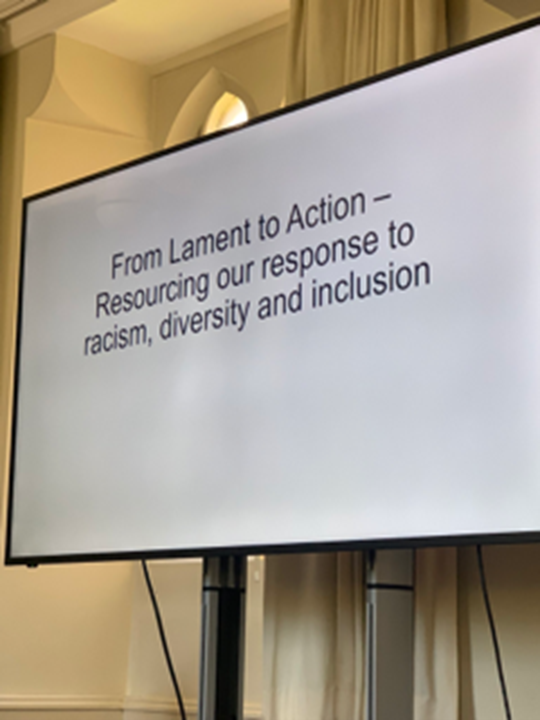Rashida Hartley, Racial Justice Officer for the Bristol Diocese, reflects on ‘Lament to Action’ workshop at Sarum College.
 The diversity of identity and gifts given to God’s people is not an end in itself, but is for the purpose of building up the Body of Christ. Galatians 3:28- 29.
The diversity of identity and gifts given to God’s people is not an end in itself, but is for the purpose of building up the Body of Christ. Galatians 3:28- 29.
Human beings are created in the image of God (Genesis 1:26-27), and are loved by God. Each one of us is unique and valued by God, and therefore the intrinsic worth of every human being is to be recognised. Unfortunately due to systemic racism within the church many worshippers from GM/ME groups remain marginalised within the church. Undoubtedly it is the Church’s intention to value every human being as part of God’s creation. The commitment to eradicating racism from all areas of the church and the recommendations from the Racial Justice Task Force in the ‘From Lament To Action’ have started the ball rolling.
It was therefore Rashida Hartley’s pleasure as the Racial Justice Officer for the Bristol Diocese to attend the ‘Lament to Action’ workshop on Friday 8 July 2022, facilitated by Chigor Chike at Sarum College, Salisbury. Other colleagues from the Diocese of Bristol were there to hear, discuss and discern how we need to move forward in our quest for inclusion and equality.
Rashida’s key takeaway is how unconscious bias can shape the church mission and our personal behaviours, if left unchallenged.
As Inclusion and Diversity continue to be major issues for the Church it is very important that, as a diocese, we attend unconscious bias training because being aware of our unconscious biases is essential to understanding our associated behaviours.
Caroline Jowett-Ive’s role as the Director with responsibility for Equality, Diversity and Inclusion echoes Rashida’s reflections and observations above, and was particularly and appropriately challenged with the concept of white fragility and how this diverts our attention away from hearing what our GM/ME colleagues are telling us about their lived experience. To learn more about this, Chigor recommends reading the following books.
- White Fragility: Why Its So Hard For White People To Talk About Racism, by Robin Diangelo
- Stamped From The Beginning by Imbram Kendi
- Me and White Supremacy by Layla Saad
- So you Want To Talk About Race by Ijeoma Oluo
- How to Be Antiracist by Ibram X Kendi
- The Sum of Us by Heather McGhee